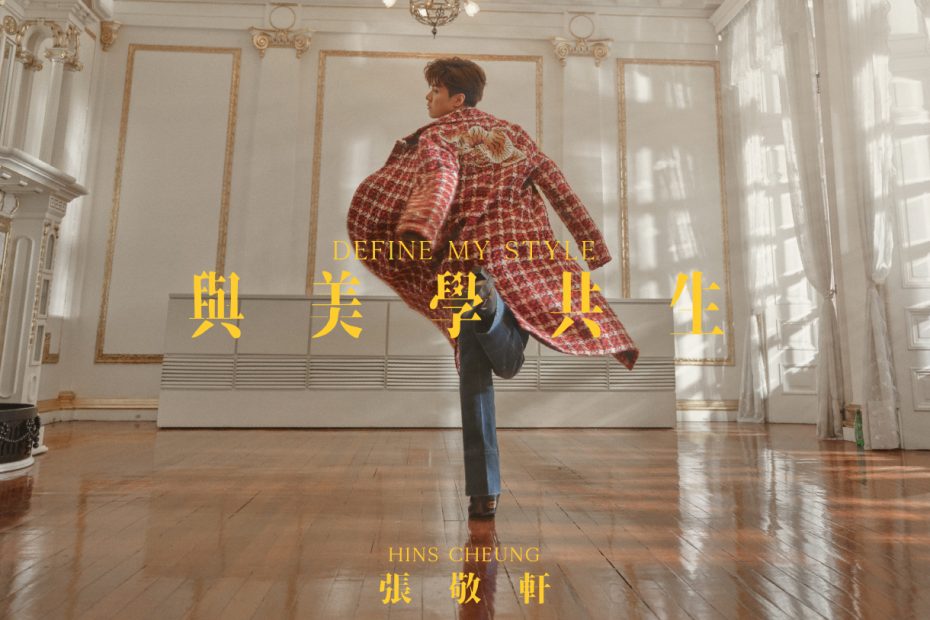Having debuted for over twenty years, Hins Cheung has long established his position as the king of the Cantonese music scene. With his vocal skills reaching unparalleled heights over the years, he lives up to the title of “Emperor” bestowed upon him by fans. Today, he is a singer, music director, as well as an antique collector and design consultant. He never forgets to extend his innate aesthetic taste from music to life, opening a French restaurant, investing in a classical bridal shop, renting historical mansions, acquiring antique recording studios, and blending Nanyin with Cantonese pop songs… When talking about Hins Cheung, besides his music career, one cannot ignore the classical aesthetic soul that resides within him.
His life has long been closely related to aesthetics, and it is more like he has already chosen aesthetics as a lifelong subject of study. While most people see aesthetics as a necessity for art, focusing solely on form, color, and artistic conception, after years of searching and contemplation, aesthetics has slowly become a part of Hins Cheung’s daily life, becoming a way to understand the surroundings, all things, and to understand the artistic conception of his own life.
Today, let’s join him at the historic site of the Hong Kong Sun Yat-sen Memorial Hall (Kam Tong Hall), surrounded by history and cultural relics, to understand his views on aesthetics together, and share how he releases the most sincere aesthetic freedom from art, bringing aesthetics and beauty closer to life.
The emperor arrives in the June issue.
「我覺得美學與『美』是沒有關係」
Before starting the interview on “aesthetics,” we asked him, “What does aesthetics mean to you?”
Hins Cheung thought for a moment and replied, “Aesthetics is about finding your own perspective, a perspective that you like, to look at something or an object.”
When it comes to aesthetics, many people naturally think of art or anything related to beauty, but for Hsuan, art can be an extension of aesthetics, but not necessarily the only association. “I think aesthetics itself has nothing to do with ‘beauty’. Because the word ‘beauty’ is neutral,” he continued, “It can contain many emotions, it can even be violent, challenge human nature, or even go against human nature. And I think all of these have their own aesthetics within.”
Aesthetics for him is more like an accumulation of experiences and experiences, not just the external forms revealed in this world, but also the inner state and form. “When I appreciate a work of art, or an artistic act, I actually need to set aside the norms of good and bad, ugly and beautiful that we have been educated with since childhood. I think a work of art is meant to bring about feelings in people. In fact, whether it is good or bad, oppressive or relaxing, depends on each person’s aesthetic perspective or what they can accept in terms of aesthetics.”
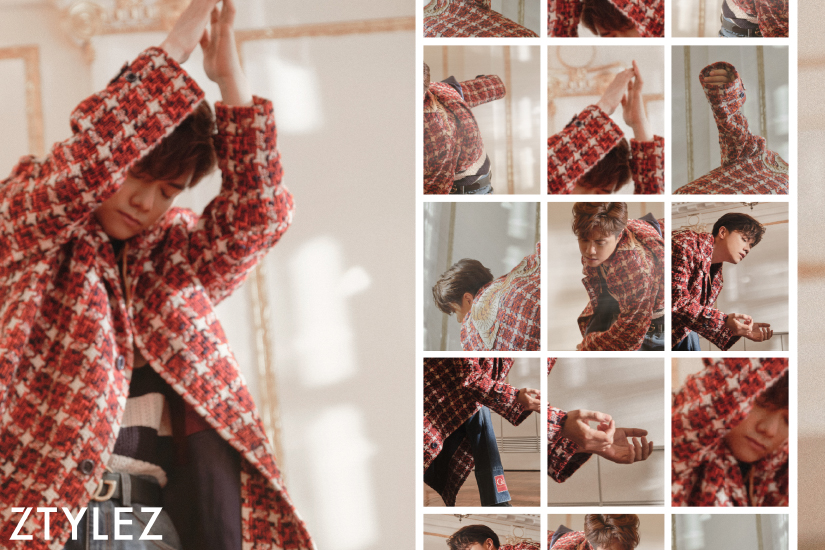
This is an “aesthetic paradox,” a philosophical concept that rises from the way things exist and then merges with aesthetics to become a paradoxical aesthetics, that is, a contradictory conflict aesthetics. Boundaries are broken, barriers disappear, and any form of beauty becomes no longer important. What is important is not to pursue perfection, but to embrace a more relaxed and vibrant life.
「我做每一件事,只有一個出發點,就是『從人出發』」
It is precisely because his aesthetic definition contains rich vitality that he values “people” and “emotions” so much in his music and performing arts career, personal life and interests, as well as in the operation of his restaurants and bridal shops. He also admitted, “In fact, everything I do, whether it’s albums, concerts, restaurants, or even the recent bridal shop, all have one starting point, which is ‘starting from people’.” Hsuan emphasized.
He used JUNON Restaurant as an example, “In terms of profit, it is lower than the average cha chaan teng, but I just feel that Hong Kong needs a restaurant like this. Because we hope to use performances to increase interaction among all diners, to stimulate the reserved Hong Kong people, and to provoke more thinking, even if it’s as simple as the communication between each couple, it’s worth considering.” Although it sounds a bit cliché, Huen couldn’t help but sigh, “Although I really like technology, we can’t let technology consume us. Human nature itself or our lives should have a more organic form of communication.”
In fact, in addition to being a musician and performer, it is not an exaggeration to say that Hins Cheung is also a “conservation ambassador.” Over the past few years, he has lived in the Grade III historical building “Felix Villas” in Ma Hang Ling, collaborating with the University of Hong Kong on conservation efforts; he then moved into the equally 1920s-built Old Alberose, owned by the University of Hong Kong; he also took over Avon, the largest and most historically significant professional recording studio in Hong Kong; he recently invested in reviving the 1960s Queen’s Café; and in recent years, he has invested in the 150-year-old bridal brand Sennet Frères… All of these are endeavors beyond being a singer.
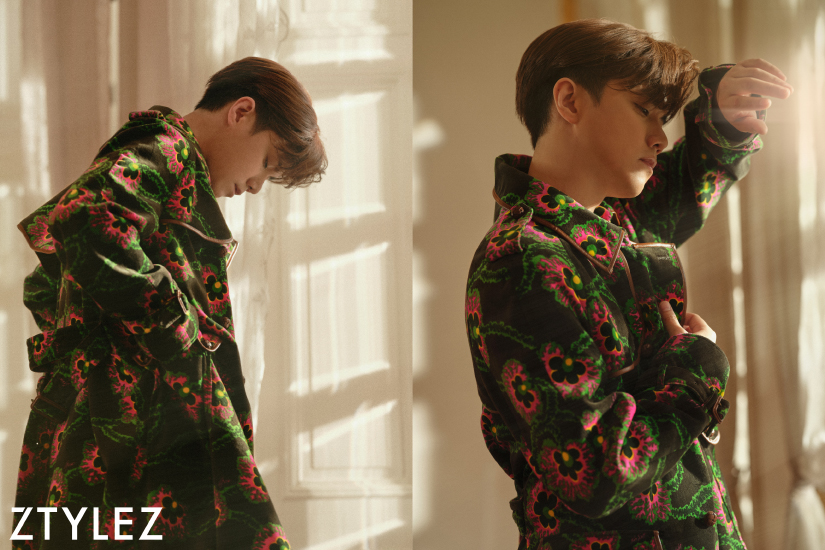
He chose to move into the Old Alberose mansion, not only because of his love for history and culture, but for a while, he even wished he had a time machine to go back to that era of Old Alberose. “I really want to see that family, see the owner, and understand how the people of that era lived – an era without modern infrastructure, communication. What kind of life could I have lived back then?” Hsuan shared.
Because in his mind, the most charming aspect of aesthetics is people, beauty exists because of people.
「香港人和這個城市是很有聯繫,是同呼同吸。」
The gentleman in front of us, with a clear and round pronunciation, is actually originally from neighboring Guangzhou. Choosing to root in Hong Kong for twenty years, of course, the music industry is a very important reason, but it turns out that when he made this decision at the beginning, he went through some struggles and took some time to consider.
Because for him, the emphasis on where he lives is the experience and feeling, what he values is the vitality of a city.
“In choosing a city to live in aesthetically, I usually choose cities with history and cultural background. I don’t like new towns, for example, some very artificial buildings carved out purely for commercial reasons; very convenient transportation, and shopping malls everywhere. As a city dweller, these facilities certainly make life much more convenient, but as my own city, I would like that city to have more urban background.”
Twenty years of ups and downs have brought twenty years of contemplation: “So, during that time, I was always thinking: ‘Should I stay in Hong Kong as the base of my life? Or should I go to another city?’ And the ultimate conclusion is, he likes Hong Kong, as he did twenty years ago, and still does now.
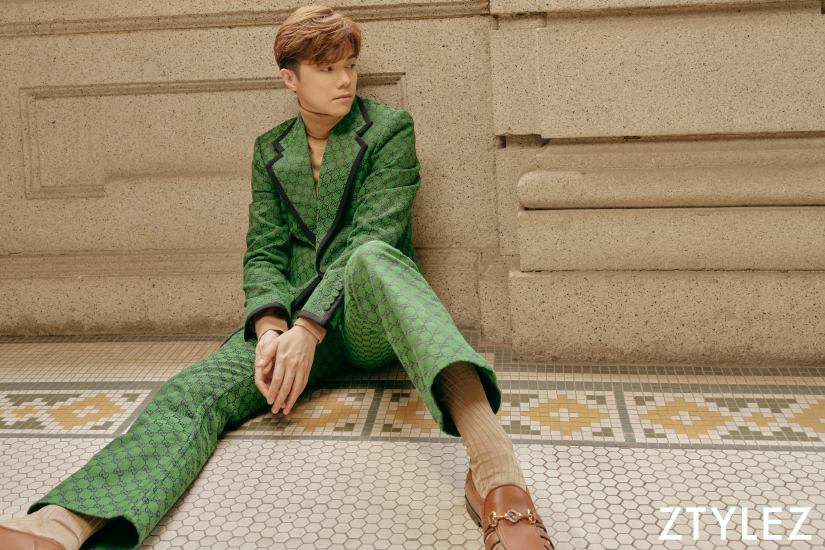
Xuanzi knows that he is nothing but a typical Aquarius, contradictions are his nature, but when this nature is presented from this small town, it transforms into precious characteristics.
Looking at Hong Kong, I feel like it’s a person, a person with a past. It has traditional Chinese family values, moral values, etc., but at the same time, it’s very open, and then suddenly becomes very conservative, very contradictory. And I am an Aquarius, so I feel that we are very similar in this respect. He frankly stated that Hong Kong does have many similarities with his hometown of Guangzhou, such as culture, historical background, environmental colors, etc., but what impresses him most about Hong Kong is the incredibly shocking pulse it exudes.
“Because Hong Kong people are very connected to this city, it’s like breathing the same air. When everyone is happy or the environment is good, no matter where you go, even if it’s just a corner store, you’ll feel that people’s appearances are a bit better; but when the atmosphere is bad, or people are not very happy, during that time you will feel that the city’s breath is different.”
Although Hong Kong may not be considered a “land of abundance,” unless you have truly lived in Hong Kong, it is difficult to feel that the core of this small piece of land is pulsating with intricate bloodlines, just as Huen said: “This is a city that is still alive, like breathing.” The process of seeking aesthetics often blurs the lines between beauty and art, refinement may be skilled craftsmanship, but what is often overlooked is life experience, and how to experience the value of beauty in life. The above is not only what Huen is familiar with, but also the Hong Kong aesthetics that everyone is familiar with.
「人的審美是會變,當自己改變時,它便會變成一種有溫度的審美。」
For Xuan, the exploration of beauty should not simply pursue the precision of aesthetics or artistic techniques, especially for those with a keen sense of the diverse world, the process and utility of aesthetics are key. This kind of pursuit can probably be seen from Xuan’s collecting habits: “My collection and my aesthetics are directly related. Because, I feel that I really need to absorb things related to aesthetics.”
Whether it’s achievements in music or the decoration of the home, it directly reflects Hsuan’s pursuit of standards. This is not just about being cautious towards others, but also a kind of rigorous self-discipline: “I am someone who enjoys delving into things, so when I first arrived in Hong Kong, because I really enjoy the feeling of being at home, I paid special attention to the decoration at home. I gradually learned about styles like Scandinavian, Victorian, Art Deco, and so on. Over time, I came to understand that the appearance of people from different eras is directly reflected in their aesthetics.” He continued, “When you are willing to look more, to feel more, even a wooden door or the plaster lines on the ceiling, that sense of touch is already quite different. So I think starting from aesthetics, when you begin to make changes yourself, it gradually becomes a warm kind of aesthetics, stemming from a pure need in life, gradually affecting me, making me start to pay attention to myself, to care for myself.”
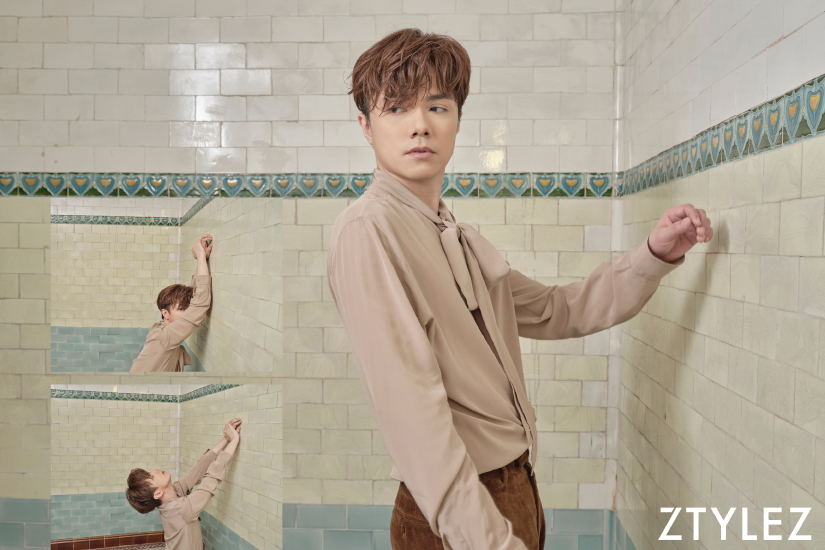
It is these seemingly insignificant experiences that have formed a significant gap with the universally recognized concepts of aesthetics, art, and so on. However, this aesthetic development is tightly linked to every morning and sunset in the process, gradually integrating into life, imbued with real meaning, which is also the aesthetic value that Xuanzi has always longed for.
「我和審美是共生的。」
Xuanzi loves everything old, whether it’s the music videos, the settings in Old Alberose, or his curiosity about this small town, you will always feel the strong evaporation of the term “sense of the times” on him, influencing his taste, style, and even his vision. “I used to think that the sense of the times was not a very important element, but recently I think it is. As a modern person, the fun part is to embrace every moment. I think that era, no matter how short it is, can be very nostalgic.”
So, does Xuanzi think of himself as someone who cherishes the past or someone who is nostalgic?
Actually, I can’t tell myself. I think I should be a nostalgic person.
Xuanzi openly stated that he is used to using more advanced technology products in his daily life, but his living environment is completely from the 1940s, with no television and every light bulb still using “tungsten wire.” Walking between the new and old era atmosphere in this way, Xuanzi believes that it has given him an extra facet of personality compared to others, providing him with a different perspective on aesthetics, thoughts, and ideas. However, the cultivation of taste is painful; to put it more directly: “My taste is paid for with tuition fees.” Even for a collector as cautious as him, reaching such a level of aesthetics involves experiences of hitting walls along the way, “At the moment of purchase, I feel like I really like it, but after collecting it for a while, I realize it’s a fake.” Xuanzi admits that he is a strange person, even though he enjoys exploring or researching new things, after all the back and forth, it is always the old things that capture his heart.
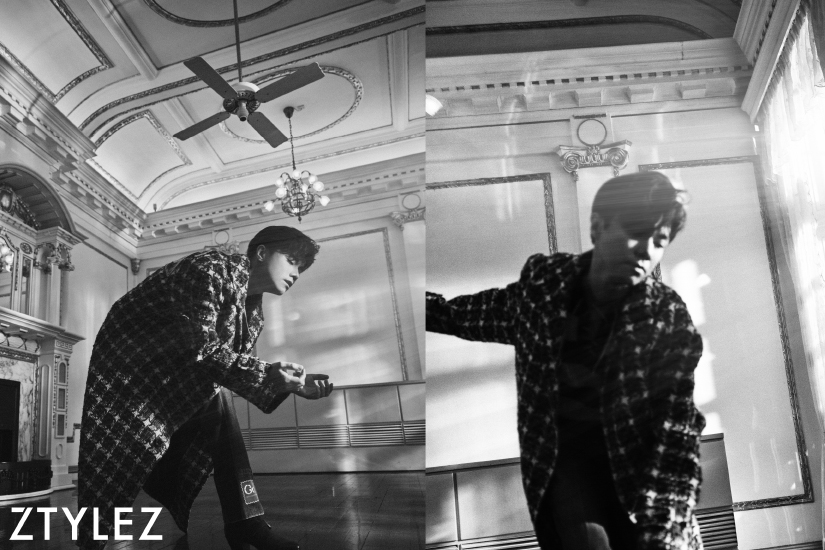
However, people cannot sit still and age. Progress is needed in this world. Hsuan believes that whether it’s new things or antique collections, maintaining curiosity towards different things and seeking freshness is the key.
「審美,對自己嚴格便足夠,別要求別人與自己看的東西一樣,那會有趣很多。」
In front of the camera, the image of the versatile Hins Cheung is not only classical and elegant, but also deeply characterized by his mischievous and playful side. “Disastrous Breakfast,” “Dragon Fruit,” “Ni Huanghun,” and other topics have brought laughter and post-dinner conversation to many. Hins Cheung shared that these funny ideas stemmed from a desire to alleviate boredom. “I don’t have many friends, so I need to find happiness in my own life. Through small things in life, I can amuse myself. I’m not deliberately trying to create any topics. In fact, I’m very simple. Seeing people happy is enough for me. As for making myself look bad, I really don’t think that way.” The only unexpected outcome was that the period of humor and playfulness caused him to lose a good number of loyal fans, Hins Cheung shared.
Since others see these self-deprecating behaviors, will it violate their aesthetic image?
“Actually, beauty or lack thereof has nothing to do with how others see it.” Hsuan shared that many people around him have strange habits and aesthetic preferences, but from his perspective, those people live quite happily and contentedly. As long as they don’t offend others, why live within someone else’s framework? This is probably Hsuan’s biggest realization about aesthetics. “So I think, being strict with your own aesthetic standards is enough, there’s no need to expect others to see things the same way as you do, that would be much more interesting. If you don’t use others as a reference or standard, you’ll actually be happier.”
However, it is not easy to embark on the path of “amateur comedian”, especially when you sincerely want to bring laughter to the audience, you must first enjoy it yourself. “I don’t know why, but I suddenly lost that playful attitude in recent years. It’s very difficult to make myself laugh, it must come from the heart,” Hins continued, “But I know, I still like the feeling of happiness, deep down I am still the ‘mean and funny’ Hins Cheung. However, that time has passed now.”
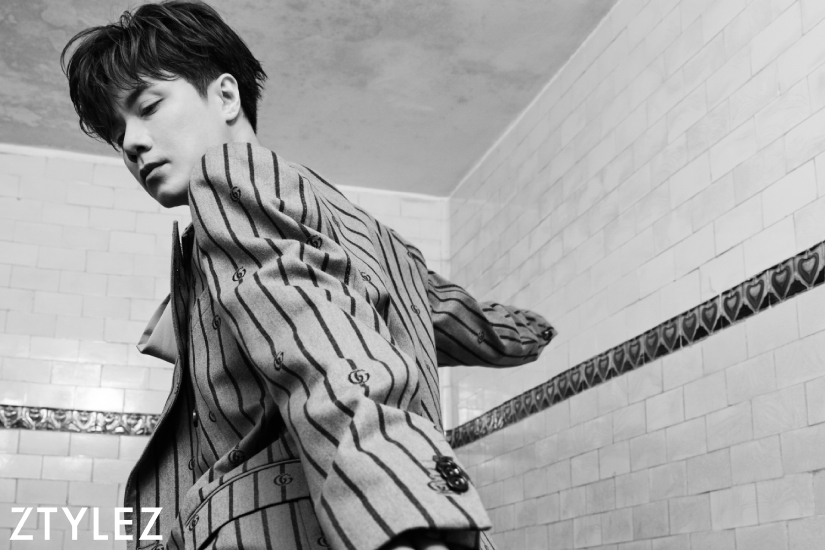
Living in the dazzling and colorful entertainment world, who can truly claim to have a predestined fate? No one is born an entertainer, but this notion is reasonably debunked starting from Xuanzi’s confession.
“My happiness partly comes from the happiness of others, which is why I chose to work in this industry,” Hsuan shared. Even now, he often feels that he lacks the qualities to be in front of the camera, saying, “My EQ is low, I’m not the type of guy that everyone loves, and I’m lazy.” However, influenced by his upbringing and beliefs, he has this understanding of his career: “I feel that as a singer or entertainer, if you don’t have a sense of mission – I’m just an ordinary person. But after working in Hong Kong for many years, having produced many works and gained an audience, I don’t think it’s because I was ‘born lucky,’ but rather it’s destined that your voice or what you do is meant to bring entertainment and comfort to others.”
Xuan has always carried such a mission in his career and life, with a grateful and inspiring attitude, in order to present a considerable report card before meeting God.
And his achievements, of course, are there for all to see, and beyond doubt.
「因為審美,對於我來說是一種 dignity。」
To establish one’s own aesthetic of life, it is certain that not everything in front of us is decided, but the most important thing in aesthetics is how to treat people, things, and encounters with a sense of beauty.
He quoted the lyrics of “Youth Resides” and said, “Just like the song says, no matter who Jiajia is, who Fangfang is, even if they are our idols, when they age beautifully, there is actually an aesthetic in it.” Probably as performers, unconsciously, there is a thought of ‘I want to always remember his or her best moments.’ “Therefore, I recently told my colleagues, ‘We should retire in our 40s, and then never be seen by everyone again,’ just like Yamaguchi Baihui did back then, so elegant.” Of course, Xuanzi was just talking, at this stage he is still very enthusiastic about his current performing career.
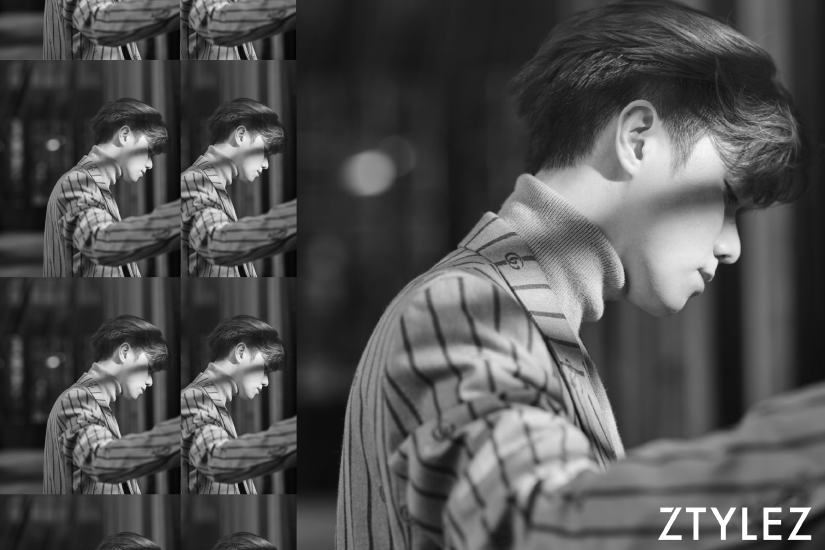
But he admits that Hins Cheung is definitely a person who loves beauty. He even described it like this: “Hins Cheung and aesthetics have always coexisted. I am the kind of person who, even if I end up in such a situation, even if I end up in the most destitute and degraded situation, I will do my best to make myself satisfied with the living environment. Because aesthetics, for someone with my personality, is a kind of dignity.”
Whether you are a singer or an antique collector introducing Hins Cheung, you will not find it difficult to discover his subtle relationship with aesthetics. However, when you try to converse with him, you will slowly realize that the accumulation of those aesthetic experiences has opened up a lifetime of useful wisdom, which over time has nurtured vitality, giving beauty another layer of meaning. Even on the last day of his life, he will proudly tell you, “Yes, even in death, I want to die beautifully.”
Life is fleeting, and the aesthetics of life are formed by the accumulation of daily experiences of beauty. Aesthetic experience emphasizes the practice of thought and action. Standing within the framework of art and aesthetics, attempting to separate the two is actually a form of liberation, allowing art to expand to endless boundaries without being delayed by aesthetic fatigue; on the contrary, letting beauty release further into life, the quality of life can also be improved step by step. In this vast world, how can we perceive the existence of beauty and embrace the value of beauty? After this conversation with Xuanzi, you will probably understand: “Everything starts from people, from oneself.”
Aesthetics should be more of an attitude or perspective in choosing what to see.
–
Producer: Vicky Wai
Photography: Rex Tsui
Videography: Andy Lee, Napoleon Lee & Yanice Lee
Styling: Vicky Wai
Make up: Cyrus Lee
Hair: Ritz Lam
Video Editor: Andy Lee
Editor: Carson Lin
Designer: Tanna Cheng
Wardrobe: Gucci

